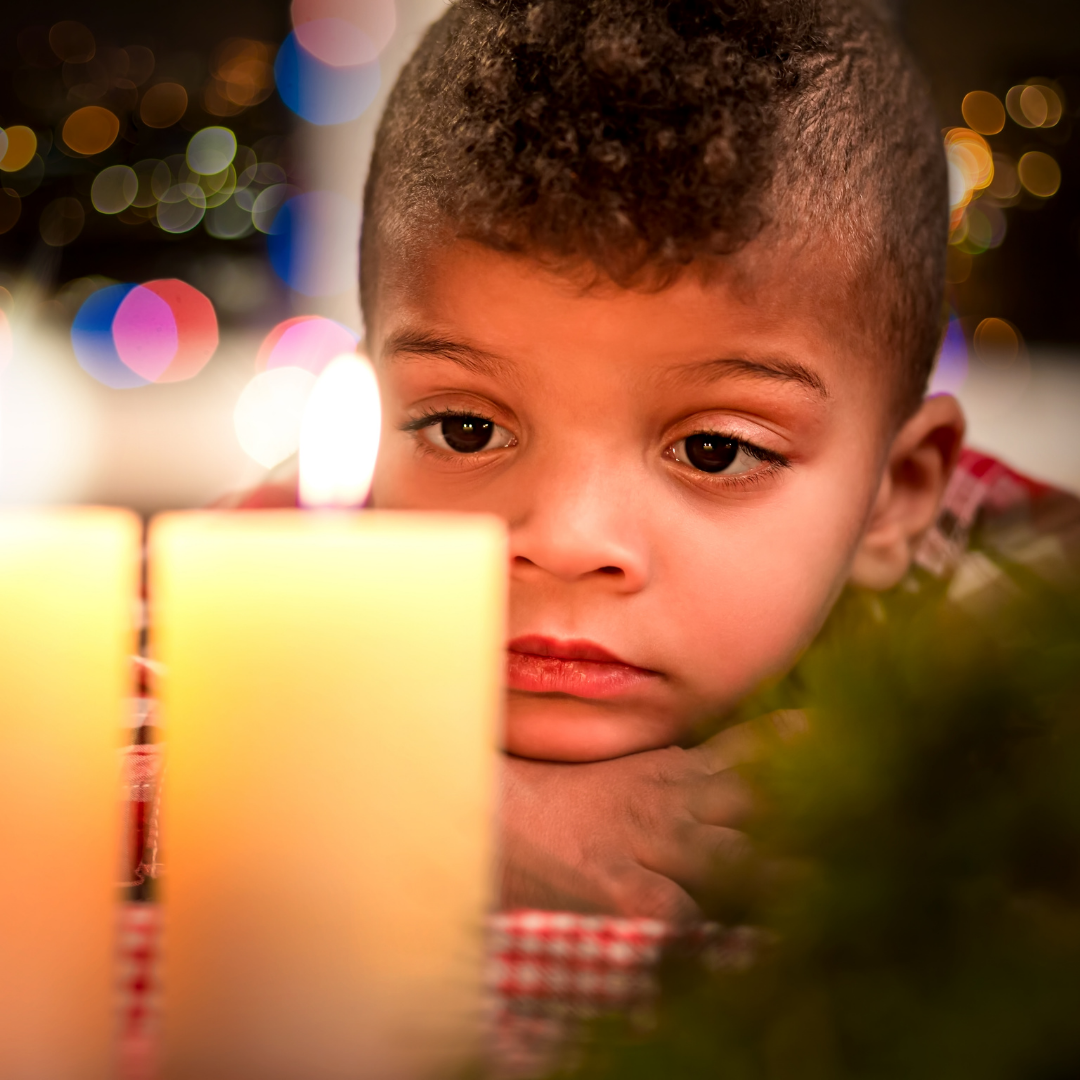
Janelle Peregoy shares five ways families in the middle of grief or loss can navigate through the holiday season.
A friend of mine shared the story of her recent trip to the grocery store. She was dutifully checking bananas for brown spots when she became aware that “I’ll be Home for Christmas” was blasting over sound system.
“It was so overwhelming. It felt like I couldn’t breathe. I was suddenly ugly-crying in the middle of the produce section.”
She had lost her mother to cancer five months prior. In that precise moment, she realized in a very real way that her mother would not be hosting Christmas Eve dinner this year.
Grief is a reality for many during the holiday season and the pain of it is often juxtaposed to the pervasive commercialism and falsified cheer of the holiday season. There are many forms of grief: loss of a spouse, a parent, a miscarriage, etc. Grief extends beyond mourning the death of a loved one, many will grieve the loss of a marriage or of a home. Many recently divorced or separated families struggle to navigate the holiday season. Equally, some parents of young adults may find that the first year a son or daughter is away from home during the holidays to be particularly challenging. Although no single individual’s grief can generalized there are some common threads for those who are grieving.
In my professional ministry, I work with many recently divorced and widowed families. Here are five suggestions for coping through the holidays if this is your reality.
Trust Yourself
Another friend hosted Thanksgiving dinner, as she had every year for decades, two weeks after her husband left her. “Even I look back at that year and wonder what I was thinking – but it was okay. I survived that night feeling like I had accomplished something important without him.”
- Many well-meaning people will try to tell the grieving individual how to “celebrate” the holidays. Yet it is your grief and your process and ultimately … your discernment.
- Grief is not a linear process. This may not be your first holiday season since your loss; be gentle with yourself if there are new triggers or new challenges this year.

Attend only what you want
- Some people will enjoy the distraction of holiday events. Some will prefer to hibernate throughout the season. Going back to trusting yourself, both are entirely alright.
- If you do attend holiday functions, give yourself an out should your feelings quickly change upon arrival. This may be a predetermined friend who can make polite excuses for you.
- Be mentally prepared with boundaries. Maybe, you want to discuss your husband’s passing with select individuals or not at all. Prepare a quick response before you arrive so as to not feel caught off guard in the moment. “I do not want to discuss _______ right now but would like to hear about how your family is doing.”

Start New Traditions (or not)
A mom of teenagers shared with me the story of her first Christmas after her divorce. Neither she nor her teenagers felt excited about attending Christmas Eve dinner at the home of her former in-laws, surrounded by her husband’s side of the family. Her son casually said, “All I want to do is watch Elf and eat pizza.” Their new tradition of watching Christmas movies and gorging on junk food every Christmas Eve was born. The mom said that first Christmas Eve taught her two important lessons. Firstly, that new traditions could be just as good as previous traditions. Secondly, it reminded her that her children were also in the midst of grieving. They deserved more of a voice in how they were going to heal and move forward as a family.
- Do not fear new traditions.
- At the same time, keep the rituals and traditions that you find meaningful. During the first year of grief, some individuals may find comfort in doing familiar rituals and traditions.

Lean into Advent
Many people, even some Catholics, mentally skip over Advent and head straight into Christmas. As a liturgical season, Advent is removed from the commercialization and objectification of the Christmas season. Advent welcomes us to pause and to pray. At its core, Advent is a time for waiting for the Christ’s incarnation and ultimately of his healing of our humanity.
- Listen to traditional Advent hymns. “O Come, O Come, Emmauel” has haunting lyrics that reflect the sorrow of the human condition. Yet, the hymn leaves the listener with the fervent hope of the coming of Christ.
- Pray with the Psalms; they show us an ancient way of lamenting and bringing a full expression of human emotion before God.
- Attend Advent prayer services and evening Reconciliation services at your parish. It is a beautiful way of allowing your community of faith to bear witness to your grieving process.

Understand the Difference between Solitude and Loneliness
There is greater public health data correlating loneliness and social isolation with significantly worse outcomes for mental and physical health. Yet, we also live in a culture that frequently negates the role and need for solitude, which is a state of being alone and positively engaging with oneself.
- We can go back as far as St. Anthony and the Desert Fathers to be reminded that much of our Catholic history depicts those seeking solitude as a way to cultivate a deeper relationship with God. Jesus himself also sought solitude at so many critical moments in the Gospels.
- Solitude offers a unique opportunity to listen to one’s own voice and minimize other’s opinions.
- Prayer often flourishes in the space solitude creates.
For those of you who grieve this holiday season, you are in my prayers. I leave you with these healing words.
O God, restore us; light up your face and we shall be saved. (Psalm 80:4)
Copyright 2021 Janelle Peregoy
Images: Canva Pro
About the Author

Janelle Peregoy
Janelle Peregoy, M.Div, is an Associate Director in the Office of Family Life & Spirituality at the Diocese of San Diego. So yes, she has found one of the few positions where it is professionally acceptable to contemplate the spirituality of potty training. A Pope Francis bobble-head sits on her desk for inspiration. See more from Janelle on her blog, Faithfully Irreverent.


.png?width=1806&height=731&name=CatholicMom_hcfm_logo1_pos_871c_2728c%20(002).png)
Comments